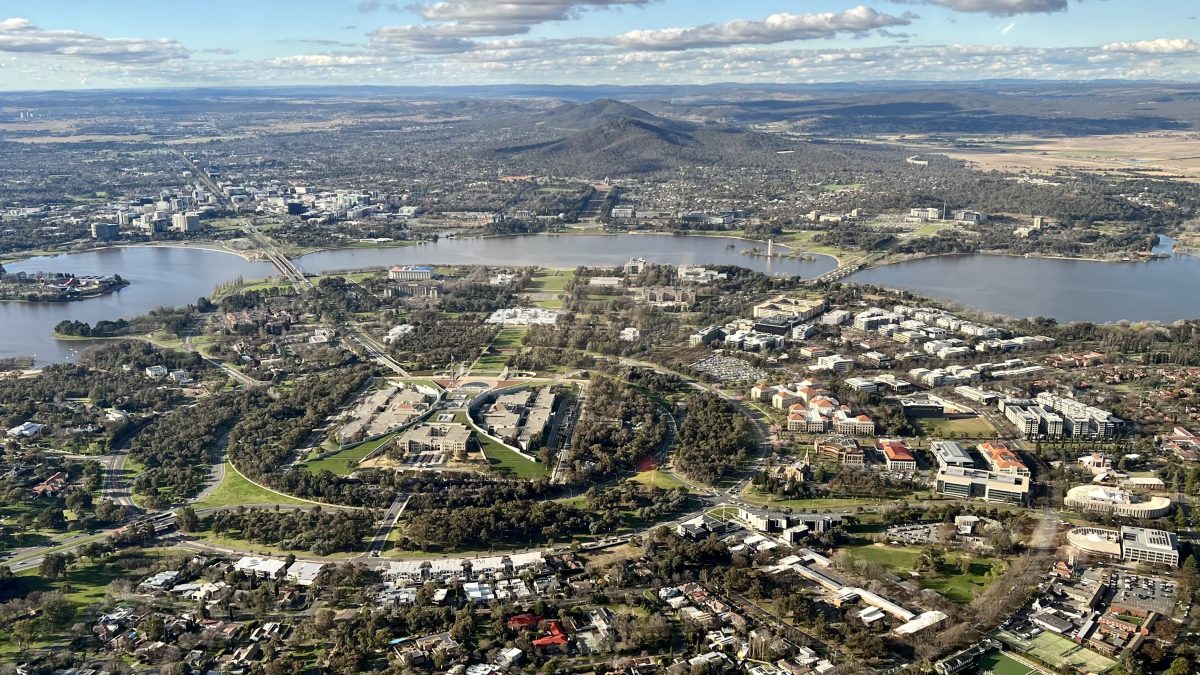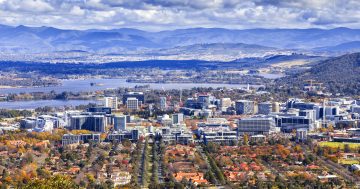
The ACT was the only jurisdiction to report a drop in business investment in the financial year to June 2023. Photo: James Coleman.
The Canberra Business Chamber has warned more needs to be done to make it attractive to do business in the ACT as new numbers show a concerning drop in investment by the sector.
But the ACT Government has insisted the numbers instead reflect the higher standard of living in the Territory and its “strong fiscal position”.
The latest State Statistical Bulletin figures from the Parliamentary Library showed business investment fell in the ACT by 9.5 per cent in the 2022/23 financial year – the only jurisdiction to report a negative result.
The next lowest jurisdiction was Tasmania with 0.7 per cent growth in business investment in the same period.
Business investment is the amount of money put in to projects, growth and expenses by the private sector.
Canberra Business Chamber CEO Greg Harford said the numbers were concerning.
“The message from our members is that things are tight, business has slowed right down and business is not investing as much as it might have previously,” he said.
Given the ACT is a small market, the movement by some of the larger business players can have quite an impact on the numbers.
The economy has been challenging due to higher interest rates driving down consumer spending and business investment.
A drop in other areas in the ACT can also impact business, including a 37.6 per cent decrease in the number of dwelling approvals and 17.7 per cent fall in lending for the construction of owner-occupied housing.
The Federal Government’s shift away from using consultants is also a factor, given the higher number of consultancy firms based in Canberra.
But Mr Harford said there were still ACT-specific barriers impeding business investment and growth.
“There is the perception business is more costly [in Canberra], that it’s harder to get things done, and also the market is very small,” he said.
“Larger national players can choose not to set up in Canberra because it doesn’t stack up, things like payroll tax do have an impact … as it incentivises [businesses] not to grow.”
Mr Harford also pointed to workers compensation insurance and inconsistencies of ACT policy with other jurisdictions as barriers.
“We need to change the compliance mindset in government … we think culture change is required,” he said.
“Look at the policy settings that are in place, reduce the red tape and bureaucracy … adopt an approach more focussed on business outcomes and getting on with the job.
“The outlook [for business] isn’t fantastic.”
Shadow Business Minister Leanne Castley said the latest numbers showed the sector had “no confidence” in the current government’s ability to support a business-friendly environment.
“While business investment can fluctuate, to be so far removed and such an outlier from any other jurisdiction indicates that the business sector is clearly not confident in investing in Canberra and is avoiding the ACT,” she said.
“The ACT Labor-Greens government claims to be business friendly but treats business as a milk cow to fund its big spending.”
She said businesses were facing other costs they couldn’t just absorb, such as rising input costs, workforce shortages and supply chains.
“It is also concerning that in the increased inflationary environment, the fall of 9.5 per cent is even greater in real terms and as for the likely impact of these terrible numbers,” Ms Castley said.
“As a leading indicator, this shocking business investment number will no doubt contribute to the deteriorating budgetary position that the ACT finds itself in, led by a reckless Labor-Greens government.”
An ACT Government spokesperson pointed to other statistics in the report which reflected positive results for the Territory, including gross state product’s growth by 4.3 per cent, 2.4 per cent per capita.
Labour productivity is third behind the “mining states” of WA and NT with a drop of 0.9 per cent, and the unemployment rate was 3.9 per cent in January.
“The ACT is the fastest growing economy in Australia, with 33 years of consecutive economic growth,” the spokesperson said.
“This data shows over the past five years the ACT has had average annual business investment of $3.2 billion, with a substantial increase between 2021 and 2022 of 21.3 per cent.
“We have also seen the highest business growth in Australia, with 21.2 per cent growth from July 2019 to June 2023, well above the national average of 14.1 per cent.”
The spokesperson also pointed to a range of incentives for businesses, including no insurance duty, no commercial land tax, no stamp duty for commercial property sales under $1.8 million, the highest payroll tax threshold in the country, lower costs for A and B-grade office space when comparing eastern Australia state capital cities, and the lowest average gross face rents on the eastern seaboard.
“The ACT is open for investment and has a range of incentives and attributes that make investing in Canberra a straightforward and rewarding experience,” the spokesperson said.




















